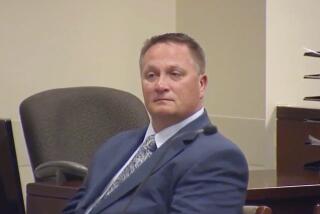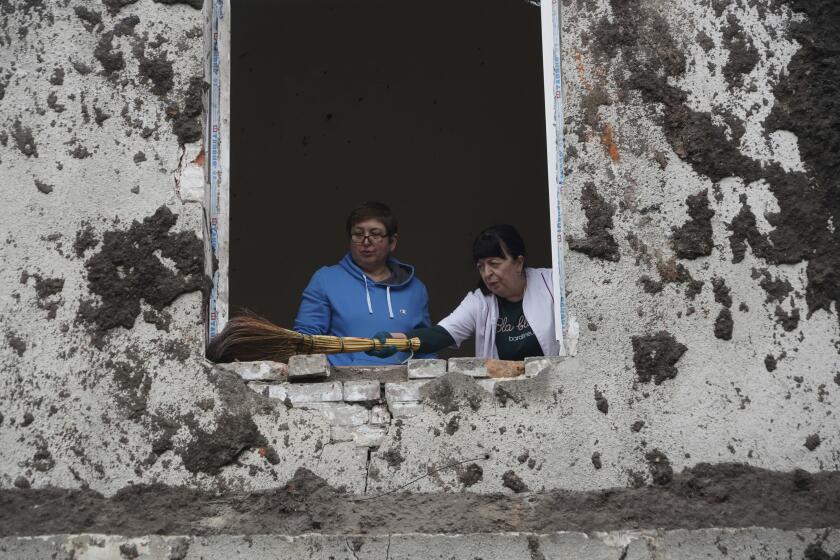Pakistani court reinstates top judge
In a serious new blow to beleaguered President Pervez Musharraf, the Supreme Court voted unanimously Friday to reinstate Chief Justice Iftikhar Mohammed Chaudhry, the outspoken jurist whose suspension four months ago galvanized a broad-based pro-democracy movement.
The dramatic development came amid the greatest turmoil in Pakistan since Musharraf seized power in a coup eight years ago. Nearly 200 people have been killed this month in suicide bombings and confrontations between Pakistani security forces and Islamic militants, which were ignited by the storming of a radical mosque in Islamabad, the capital.
The escalating political and military strife raises new questions as to whether Musharraf, considered a crucial U.S. ally in the fight against Al Qaeda and the Taliban, can retain his grip on power.
Chaudhry’s reinstatement paves the way for judicial challenges to Musharraf’s plan to extend his presidency in elections this year without giving up his post as army chief.
The court ruling was a stinging rebuke to Musharraf, who had sought in March to remove Chaudhry on misconduct charges. The justices declared the suspension illegal and, in a separate 10-3 vote, threw out the allegations of wrongdoing.
Rejoicing erupted outside the courthouse, with usually somber black-suited lawyers dancing in celebration and opposition party workers cheering the verdict. In cities across Pakistan, political activists and lawyers distributed sweets, a traditional token of celebration.
Chaudhry’s chief counsel, Aitzaz Ahsan, called the court decision a “victory for the entire nation.” Human rights activists also hailed the verdict.
“It’s a great day for the rule of law in Pakistan,” said Ali Dayan Hasan, a researcher for Human Rights Watch.
Musharraf gave no indication he would seek to challenge the ruling, either by legal or military means. Spokesman Rashid Qureshi said the Pakistani leader “respects the decision of the Supreme Court.”
The president “stated earlier that any judgment the Supreme Court arrives at will be honored, respected and adhered to,” Qureshi said in a statement.
The Bush administration, which has backed Musharraf throughout the crisis, pointed to the verdict as proof of judicial independence.
State Department deputy spokesman Tom Casey said the ruling “speaks positively ... that these kinds of issues can be resolved through the established institutions, through the rule of law.”
Though the ruling is a grave blow to Musharraf’s standing, some analysts believe that the confrontation with Islamic militants might help him regain his footing, at least temporarily.
The ongoing offensive against insurgents “buys him some time,” said Robert M. Hathaway, director of the Asia Program at the Woodrow Wilson International Center for Scholars.
“He doesn’t have to make any political decisions immediately, but at some point, attention will revert from the security arena back to the political one,” Hathaway said. “I think he is one very unhappy general tonight.”
Though the clash with Chaudhry made Musharraf deeply unpopular among Pakistani moderates, most of them supported the Pakistani leader’s decision this month to send in commandos to storm the Lal Masjid, or Red Mosque, whose militant clerics had sent students on vigilante-style anti-vice raids. More than 100 people were killed in the mosque raid.
After threats of retribution from militants, Musharraf ordered the deployment of thousands of troops along the Afghan border, where insurgents have taken sanctuary. At the same time, though, the government is seeking through intermediaries to revive a controversial cease-fire that was abandoned by militants last weekend.
Four people were killed in a suicide car bombing in the North Waziristan tribal region Friday, and police defused a car bomb outside a crowded shopping center in the country’s largest city, Karachi.
“We must all unite against the current wave of extremism and militancy,” said Prime Minister Shaukat Aziz.
Even before the verdict, political rivals such as exiled former Prime Minister Benazir Bhutto had been pressing Musharraf to step aside as military leader and allow free elections -- calls they are expected to renew.
Bhutto, whose Pakistan People’s Party joined with lawyers across the country in organizing mass anti-government protests, declared in a statement that the case had become the rallying cry in “a struggle against dictatorship.”
Nationwide protests against Chaudhry’s suspension, during which the sometimes prickly jurist achieved rock-star status, were largely peaceful. But his supporters were twice the target of serious attacks.
In May, gunmen from a pro-Musharraf party fired on opposition party workers in the port city of Karachi, sparking violence that left more than 40 people dead.
On Tuesday, a suicide attacker struck a pro-Chaudhry rally in Islamabad, killing 18 people.
In the past, the Supreme Court and other Pakistani courts have often acquiesced to the wishes of the country’s military rulers. Senior lawyers vowed that would no longer be the case.
“The ruling will set a precedent ... that no one can curb the independence of the judiciary in the country again,” said Munir Malik, president of the Supreme Court bar association and one of Chaudhry’s attorneys in the case.
Some observers, however, said it remained to be seen whether the judiciary would again yield to political pressure on sensitive issues such as the fate of prisoners held without trial after being rounded up by police and intelligence agents for suspected terrorist links.
“The judiciary itself will be held to a much higher standard,” said Hasan, the human rights activist. “We will see if they live up to it.”
Special correspondent Zaidi reported from Islamabad and Times staff writer King from Istanbul, Turkey. Special correspondent Zulfiqar Ali in Peshawar, Pakistan, contributed to this report.
More to Read
Start your day right
Sign up for Essential California for news, features and recommendations from the L.A. Times and beyond in your inbox six days a week.
You may occasionally receive promotional content from the Los Angeles Times.






